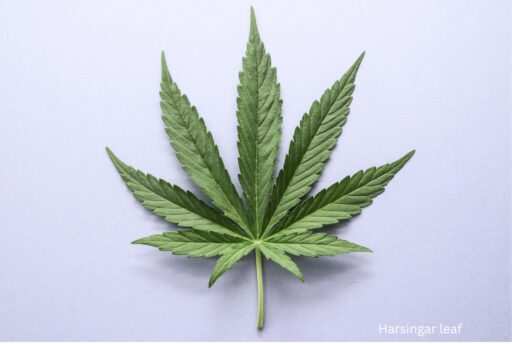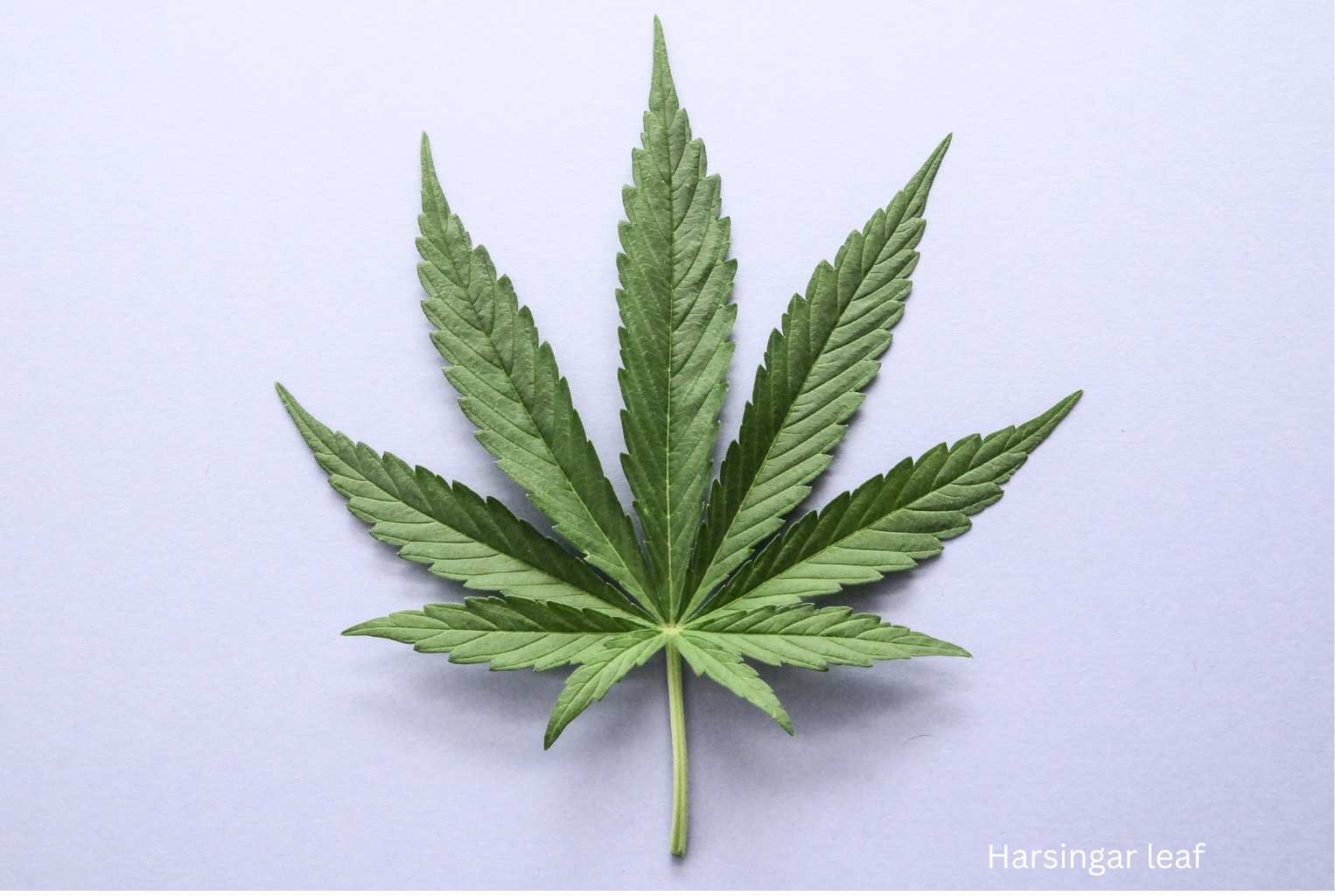Harsingar is also known as “Raat Raani” or “Parijata”. It is a sacred plant in Ayurveda. The leaves of this plant is called “Raat Raani ka Patta”. We will explore the benefits and uses of Harsingar leaf in Ayurveda in this blog.
What is Harsingar?
Harsingar (Nyctanthes arbor-tristis) is a small shrub or tree which has fragrant flowers that bloom in night. People in different regions call it “Night Jasmine” or “Parijata.” Ayurveda highly values Harsingar for its beautiful flowers and the medicinal benefits packed in its leaves.
Ayurvedic Significance of Harsingar Leaf
In Ayurveda Harsingar leaf or Raat Raani ka Patta is used to treat many diseases. It is bitter (Tikta) and pungent (Katu) in taste and cooling (Shita) in property. It balances Vata and Kapha doshas so it is useful in many diseases.
Benefits of Harsingar Leaf
Now you will understand the benefits of Harsingar leaf in Ayurveda. Here are some of them:
- Anti Inflammatory
- Harsingar leaf is anti-inflammatory in nature. It is used in Ayurvedic treatment to reduce inflammation in arthritis and joint pain. The leaf’s natural compounds reduces pain and swelling so it is a good remedy for chronic inflammatory diseases.
- Fever
- Ayurvedic practitioners use Harsingar leaf to treat fever, especially those caused by malaria and other infectious diseases. The leaf reduces body temperature and gives relief from symptoms like body ache and chill. A decoction of the leaves is recommended for antipyretic (fever reducing) properties.
- Immunity
- Harsingar leaf is immunomodulatory in nature. Regular consumption of Harsingar leaf decoction strengthens the immunity and makes the body more resistant to infections and diseases. This is especially beneficial during seasonal changes when infections are more common.
- Respiratory
- Harsingar leaf is good for respiratory health. It is used in Ayurvedic remedies to treat cough, cold and asthma. The leaf clears mucus from respiratory tract, makes breathing easy and reduces congestion. Its soothing properties calms the irritated airways and gives relief from respiratory infections symptoms.
- Digestive
- Raat Raani ka Patta is good for digestion in Ayurveda. The leaf stimulates digestion, relieves bloating and reduces constipation. Its bitter taste helps in secretion of digestive juices and overall digestion. To treat gastritis and indigestion, it serves as an effective remedy.
- Skin
- Harsingar leaf has anti-inflammatory and antioxidant properties which is good for skin. Ayurveda uses it to treat skin problems like acne, eczema, and fungal infections. The leaf is cooling in nature which helps in soothing the skin and healing.
How to use Harsingar Leaf in Ayurvedic Remedies
Now that we know the benefits of Harsingar leaf in Ayurveda, let’s see how to use this wonder plant in traditional remedies.
- Harsingar Leaf Decoction
- Decoction Recipe: Boil few fresh or dried leaves in water for 10-15 minutes. Strain the liquid and drink warm. Take this decoction daily to reduce fever, boost immunity, and improve digestion.
- Harsingar Leaf Paste
- For Skin: Grind fresh Harsingar leaves and apply it on the affected skin area. This paste can help in acne, eczema and other skin irritations. Leave it on for 20-30 minutes and then wash with lukewarm water.
- Harsingar Leaf Infusion
- For Respiratory Health: Steep Harsingar leaves in hot water for 5-10 minutes. Inhale the steam to relieve congestion and respiratory issues or drink the infusion to soothe cough and sore throat.
- Harsingar Leaf Powder
- For Joint Pain: Dry the leaves and grind into a fine powder. Mix with warm water or milk and consume to reduce joint pain and inflammation of arthritis.
Contraindications
Harsingar leaf is generally safe for most people but use it correctly to avoid any side effects.
- Consult a Practitioner
- Before using Harsingar leaf as a remedy consult an Ayurvedic practitioner especially if you are pregnant, nursing or taking other medications.
- Dosage
- Follow the recommended dosage to avoid side effects. Excessive use can cause stomach upset or mild digestive issues.
- Allergies
- Although rare some people may be allergic to Harsingar leaf. If you experience any allergic reaction stop using it and consult a doctor.
End
Harsingar leaf in Ayurveda is a wonder plant with many health benefits from reducing inflammation and fever to respiratory and digestive health. Now that you know how to use this wonder plant in traditional remedies you can incorporate its benefits in your daily life. Always consult an Ayurvedic practitioner to use Raat Raani ka Patta safely.





